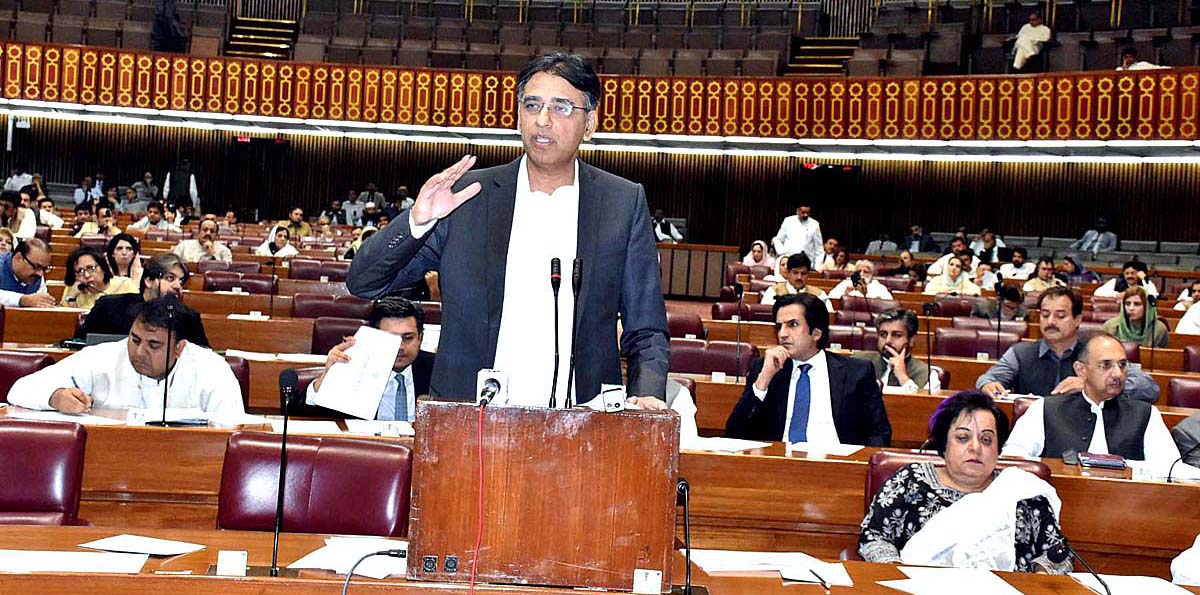The Pakistan Tehreek-e-Insaf (PTI) government is barrelling towards its 100-day deadline. Since it took office in August, its grandest political, administrative and economic gestures have been bunkered by no one else, but itself.
Senior party leaders and newly-appointed federal ministers are already griping in private about the government. “The PTI’s confusing policies and go-slow-attitude have hindered the abilities of Minister for Finance Asad Umar, who otherwise is very competent for the job,” confided a political personality close to Umar, who asked not to be named. While Umar has been tasked with chairing several committees, such as the Economic Coordination Committee and the Economic Advisory Council, he has to seek the prime minister’s approval for each and every decision, the official went on, “this causes delays and confusion and is just demotivating.”

Then, there are the U-turns. Bold proclamations and promises that are quietly and swiftly yanked by Prime Minister Imran Khan’s administration, leaving state officials red in the face. For instance, on Monday, the government announced to seek a bailout package from the International Monetary Fund (IMF), after denying it would do so in the past. The sudden announcement caused a panic. “It shook the stock market the hardest,” said Dr Waqar Masood, an economist and the former secretary of finance, “In a single day the market was down by 1,328 points and loss over Rs110 billion. It fell below the 38,000 barrier, registering a two-year low.” A senior bureaucrat, serving in the ministry of finance, agreed that the situation was mishandled by the PTI. “The economic condition is very critical these days,” he told Geo.tv, on the condition of anonymity, “Pakistan’s power circular debt is more than Rs1,200 billion and the banks have refused to give more loans to the sector. While Pakistan’s budget deficit is more than Rs21,000 billion and the current account deficit is 6.6 per cent. This is very alarming.”
So, then why make promises you can’t keep?
The options were already limited. Delaying the decision to go back to the IMF resulted in a sharp decline of the rupee by 10 per cent against the US dollar and at least a loss of Rs 300 billion in the stock market. “If the unavoidable decision has been taken earlier, the stock market might have not lost such a large amount and the dollar depreciation could have been less than 15 per cent, which is what it is expected to go up to in the next few days,” added the senior official.
There are other holdups. Even when a decision is taken, its implementation is sluggish. Now, the ECC has already decided to increase the electricity tariff by Rs2 per unit, according to sources. The premier has agreed as well. But the notification has been deferred for over 40 days now. Those privy to the development have told Geo.tv that the delay is due to the expected depreciation of the rupee. This has increased Pakistan’s debt to over Rs902 billion. Now, the additional burden on the power sector is upward to Rs52 billion, which will then have to be passed onto the consumers, or the government will have to pay an equal amount in subsidies. Even the prices of petroleum will have to be recalculated.
The PTI’s internal party wrangling is also leaving its imprints on the federal government. “After the Supreme Court’s rejection of Jahangir K. Tareen’s appeal, his role has been reduced in the party,” said a member, asking not to be named, “yet, his group is very strong and constantly locking heads with that of Foreign Minister Shah Mahmood Qureshi’s.” This, he continues, affects who controls Punjab and the Khyber Pakhtunkhwa province. But Punjab is a bigger mess. “There are the groups run by Tareen and Qureshi. Then, the governor of Punjab, Chaudhry Mohammad Sarwar, is trying to establish his own control in the province. While, Chaudhry Pervaiz Elahi [the speaker of the Punjab assembly] is also eyeing more power.”
But while its first 54 days have been turbulent, it seems, maybe the next 46 would be smoother?
Cover photo: Pins with images of Imran Khan, leader of the Pakistan Tehreek-e-Insaf (PTI), are pictured at a market a day after the general election in Islamabad, Pakistan, July 26, 2018 - Reuters


